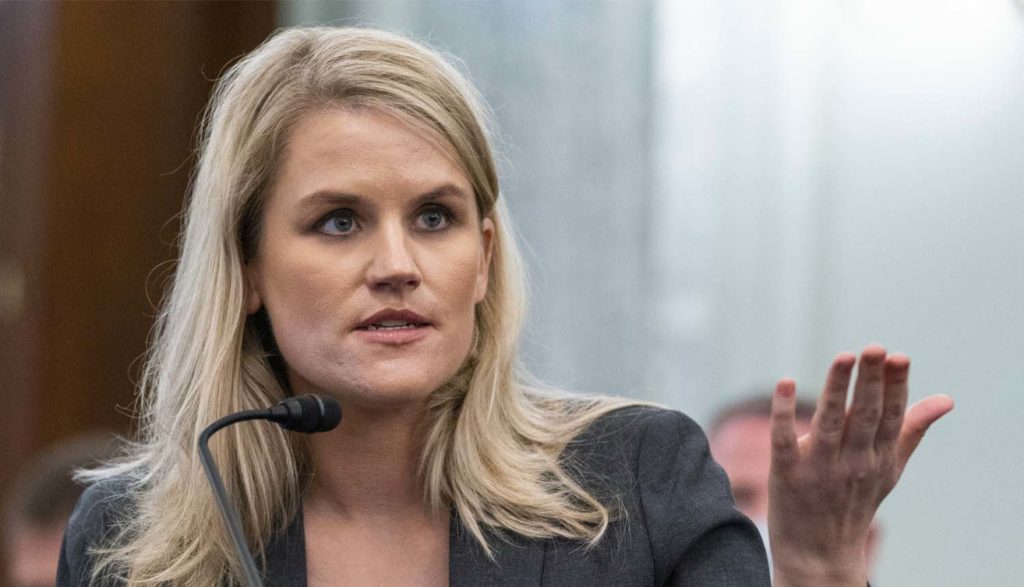First came the whistleblower. Now come the lawsuits.
Parents of a 19-year-old woman are suing Meta, the parent company of Facebook and Instagram, alleging that the social media platform led their daughter into an eating disorder and suicidal ideation.
The suit cited the so-called Facebook Papers—a series of documents (released by whistleblower Frances Haugen and originally published by The Wall Street Journal) that showed that Facebook had conducted plenty of studies on how it and Instagram were impacting teens’ lives. Those studies showed that the parent company knew that using Instagram could be harmful. One of Facebook’s studies showed that nearly a third of teen girls felt worse about their bodies after using Instagram.
The 19-year-old could’ve even been one of the users that Facebook studied.
Alexis Spence started using Instagram at age 11, according to the suit (a copy of which was obtained and reported on by USA Today). Her parents allege that her use of the social platform triggered serious changes in her, leading to “addiction, anxiety, depression, self-harm, eating disorders, and, ultimately, suicidal ideation.”
“The fact that Alexis is here is truly a miracle because we fought tooth-and-nail for her,” Kathleen Spence, Alexis’ mother, told Good Morning America. “We did everything we possibly could for her. We got her the help that she needed on multiple levels, and there were times when we were very concerned for her safety.”
But while this might be the latest lawsuit Meta is facing, it wasn’t the first—and it probably won’t be the last.
Law firm Beasley Allen filed suits against Meta on behalf of eight separate plaintiffs on June 8, for “exploiting young people for profit, employing addictive psychological tactics … and failing to protect young, vulnerable and at-risk users.” The suits allege that Facebook and Instagram designed their platforms to be “manipulative and addictive,” despite knowing that they were psychologically harmful, as well. According to Joseph VanZandt, the lead attorney for Beasley Allen, dozens of more suits are likely on their way.
“We view this very much as a defective product, just like if you had any other type of defective consumer product that injured people,” VanZandt told The Washington Post. “There’s known risk to [children] to use these platforms and there’s no warnings about that, there’s no warnings to their parents.”
Of course, the public has plenty of warning now.
We’ve said before that social media isn’t all bad. It can help us keep track of friends and family. It can help us share mutual interests with folks we might never have met before. For that matter, Plugged In can connect with you through both Facebook and Instagram.
But these lawsuits remind us that there’s a dark underbelly to social media—particularly when it comes to our youngest and most vulnerable. These platforms can shape and twist users’ perception of themselves and others.
It’s critical that parents not only help their children navigate the world of social media, they need to feed kids a little counter-programming, too: Remind them they are loved, valued and treasured. Remind them that what Instagram values isn’t always what should be valued. Because, as we read in 1 Samuel 16:7, “man looks on the outward appearance, but the Lord looks on the heart.”







2 Responses
-I know this isn’t a cure-all, but I really think all social-media sites should have stayed strictly 18+ like Facebook used to be. Yes, their content would probably widely resemble the “OF” website’s, but it would be easier to keep teens and adolescents away from it and to help them socialize in other ways (though we would have had to have some other sort of healthy age-appropriate alternative during the earlier days of the pandemic when in-person meetups weren’t safe).
-In a perfect world, you’re right, but it would be virtually impossible for social media companies to police those age limits given the sheer number of users they would have to verify. One study found that 40% of kids under 13 are already using Instagram, which is supposed to be limited to 13+.
It would also run counter to the companies’ profit motives, which incentivize high numbers of users. Never forget that despite all the talk of keeping kids safe and connecting the world, these companies are really out to make money.